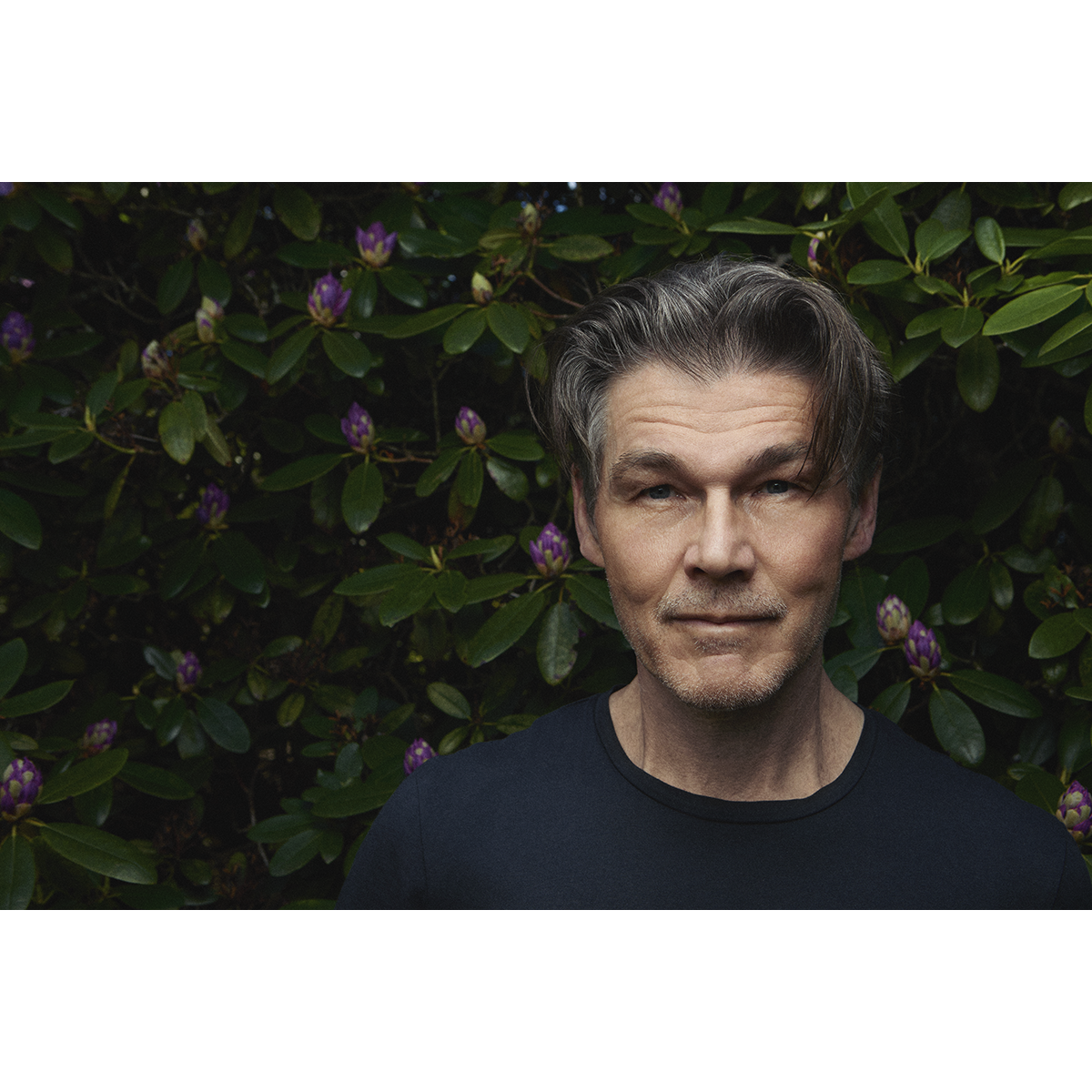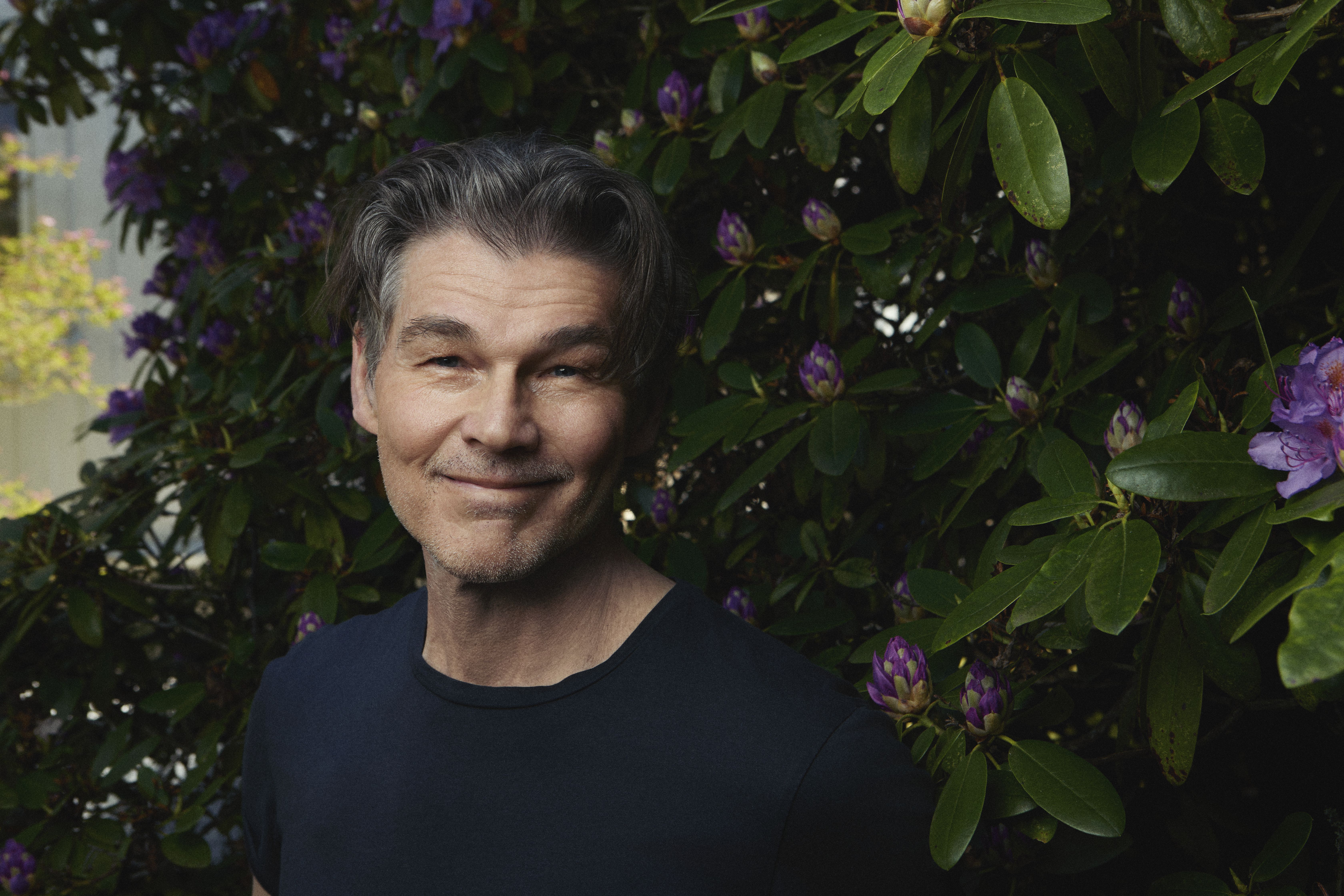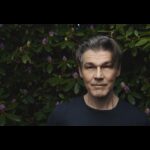Mittwoch 04 Juni 2025
Morten Harket has Parkinson’s disease

BY JAN OMDAHL
Photos: Stian Andersen / Download press pictures in full resolution here
You know him as a-ha’s iconic frontman, a divinely gifted singer, reluctant pop star, solo artist, songwriter, eccentric thinker, father of five and a grandfather too, but in recent years Morten Harket has also been a man battling his own body. This isn’t the sort of news anyone wants to deliver to the world, but here it is: Morten has Parkinson’s disease.
"I’ve got no problem accepting the diagnosis. With time I’ve taken to heart my 94-year-old father’s attitude to the way the organism gradually surrenders: ‘I use whatever works’".
We’ve travelled down to the summer house Morten and his partner Inez Andersson refurbished on Norway’s south coast. As a-ha’s biographer I’ve been asked to contribute an article to a-ha.com about Morten’s condition, which has until now remained strictly private. A few people in his immediate circle know that he is ill, but the unpredictable consequences of going public with the illness have led him to hold off on making an announcement.
“Part of me wanted to reveal it. Like I said, acknowledging the diagnosis wasn’t a problem for me; it’s my need for peace and quiet to work that has been stopping me. I’m trying the best I can to prevent my entire system from going into decline. It’s a difficult balancing act between taking the medication and managing its side effects. There’s so much to weigh up when you’re emulating the masterful way the body handles every complex movement, or social matters and invitations, or day-to-day life in general.”
Parkinson’s disease is caused by the loss of dopamine-producing cells in the brain, and it affects areas of the midbrain that control movement and manage communication between neurons in the brain and muscles. Although the disease is not fatal, the patient’s condition gradually worsens over time. In Norway it is estimated that around 13,000 people have the disease, while worldwide at least 10 million people are affected. It is the most widespread – and the fastest-spreading – neurological condition in the world.
Morten will have to live with Parkinson’s disease for the rest of his life, but medication and advanced brain surgery at the renowned Mayo Clinic in the United States have softened the impact of his symptoms. Morten’s neurologist in Norway, Dr. Christina Sundal at NeuroClinic Norway, was previously a research fellow with the Parkinson’s team at the Mayo Clinic. Her contacts at Mayo proved to be instrumental in Morten receiving treatment there that led to a dramatic improvement in his symptoms.
In June 2024, Morten underwent a neurosurgical procedure in which electrodes were implanted deep inside the left side of his brain. These are connected to a small pacemaker-like device placed under the skin of the upper chest that sends electrical impulses through the electrodes into the brain. The method is called deep brain stimulation (DBS) and is among the most advanced treatments in neurology. The procedure had the desired effect: with the right electrical impulses now reaching Morten’s brain, many of his physical symptoms practically vanished. In December 2024 he underwent a similar procedure on the right side of his brain, which was also successful.
The effectiveness of the treatment is illustrated by the fact that it is Morten at the wheel as we drive down south. His big hands seem relaxed as he steers, he has the same muscular forearms we know from a million photos. Something is different, though, and I don’t mean the conspicuous absence of his iconic leather bracelets. It’s his voice, Morten’s unique instrument, that gives the game away. “The problems with my voice are one of many grounds for uncertainty about my creative future,” he says.
With a smile and a glimmer in his eye, Morten comes across as a safe and seasoned pair of hands at the helm of the RIB as we speed along at 30 knots on the way to his island home. And it’s no different as he rummages around in his impressive tool collection to help out a neighbour who needs to drill through some rock. But the simple fact that, on good days, Morten shows virtually no sign of many of the most familiar physical symptoms of Parkinson’s, doesn’t mean that he is well. During our weekend together I am witness to a round-the-clock effort to balance medication, signals from the electrodes in his brain, sleep, blood sugar and mindset in a way that keeps the symptoms and side effects more or less in check. This isn’t always successful, and is more like a never-ending rollercoaster ride. It often affects how well he sleeps, which in turn worsens his symptoms. At irregular intervals his energy level drops and a heavy silence descends on the white summer house. It becomes obvious that the strain of talking about the disease, and of what lies ahead when it becomes public knowledge, only makes him worse, in the way that all forms of psychological stress are known to affect Parkinson’s sufferers.
“You’re actually seeing me at my worst right now,” he says.
In terms of Morten’s role as a stage personality and singer in a-ha, Parkinson’s is going to be a huge blow. His singing technique demands a great deal of power, nuance and technical control, and Paul and Magne have almost competed to write music that stretches Morten’s abilities to the limit. Delivering those goosebump-inducing moments in the vocals for “Take On Me”, “Scoundrel Days”, “Summer Moved On” and “Stay On These Roads” is almost as much a physical feat as it is an artistic one.
You made sure that your DBS treatment had the smallest impact possible on your voice. Does that mean that the voice you have now is the best you can hope for?
“I can’t answer that.”
Can you sing now at all?
“I don’t really know. I don’t feel like singing, and for me that’s a sign. I’m broadminded in terms of what I think works; I don’t expect to be able to achieve full technical control. The question is whether I can express myself with my voice. As things stand now, that’s out of the question. But I don’t know whether I’ll be able to manage it at some point in the future.”
Morten lays a hand on the little rectangle beneath the skin of his upper chest. Like a thick blood vessel, the wire connecting the electrodes to the device travels beneath the skin, up his neck, then into the depths of his brain.
“When we tune the frequencies and direction of the electrodes, it is also able to affect the region of the voice, but we’re not yet able to capture and control it. The voice problem comes especially when I take dopamine supplements. If I don’t take dopamine, my voice settles down – but then the general underlying symptoms become more pronounced.”
Morten talks about losing his voice in a way that will no doubt surprise many, but which others will recognize as vintage Harket: He doesn’t identify with his role as a singer as strongly as you might imagine, and so doesn’t consider losing his voice to be any great tragedy.
“I was always meant to do different things, but I’ve ended up with a fairly permanent position as singer in a band. When I say that my identity isn’t about being a singer, that’s my direct response. It comes straight from the heart. People associate me with it, naturally enough, and I realize that. I see singing as my responsibility, and at certain moments I think it’s absolutely fantastic that I get to do it. But I’ve got other passions too, I have other things that are just as big a part of me, that are just as necessary and true.”
Traces of Morten’s artistic sensibility, craftsmanship and extreme attention to detail are everywhere to be found at the summer house. The fact that the house faces a sheltered bay and the sea beyond, rather than busy seaways and curious glances from passing boaters, is perhaps part of the point. There are, however, neighbours at close quarters on either side of the house. The pop idol hasn’t sought out total isolation.
But how do you deal with a Parkinson’s diagnosis as a high-profile public figure? For boxing legend and activist Muhammad Ali (1942–2016), the disease was revealed to the whole world as he lit the Olympic flame in Atlanta in 1996. In Norway, TV personalities Ivar Dyrhaug and Gerhard Helskog have been open about their Parkinson’s diagnoses and their attempts to alleviate their symptoms with experimental vitamin B1 treatments abroad. Actor Alan Alda, comedian Billy Connolly and preacher and civil rights activist Jesse Jackson all have the disease, as do artists Linda Ronstadt, Neil Diamond and Ozzy Osbourne. On 5 July, Osbourne is appearing on stage at Villa Park in Birmingham with his Black Sabbath bandmates for the group’s very last concert, joined by absolutely every major name from metal’s upper ranks.
The actor Michael J. Fox is probably the most famous Parkinson’s patient. The star of the Back to the Future films has been open about living with the diagnosis he received in 1998; in 2000 he set up a foundation to promote research into the causes of and treatment for the disease. Fox took acting jobs for over 20 years after his diagnosis, but problems with his voice grew to the point that he ultimately retired from acting in 2020. Nevertheless, in 2024 he appeared on stage with Coldplay – friends of a-ha – at Glastonbury Festival, playing guitar on "Humankind" and "Fix You".
For Morten, the decision to tell the world about his illness is linked to the inevitability of what awaits him when he steps out in public as a Parkinson’s patient. At one point on our journey south, during a stop to charge the car, we get a brief glance at what his life in public is like: A man recognizes him, as people often do. He wonders whether the pop star would come over to his car to take a selfie in front of it? It’s then up to Morten to politely decline in a way that makes the situation as unawkward as possible for the both of them. A lifetime of such encounters – whether they end in an autograph, a selfie, a hug or a polite no – takes its toll. Now he awaits a life of being not just Morten Harket, global pop star, but Morten Harket, global pop star with Parkinson’s.
The news of the disease will undoubtedly fill his digital and metaphorical inbox with messages of sympathy and well-intentioned suggestions for treatment and alternative remedies. He asks people to understand that this in itself is going to be a burden.
“I’m going to get so many messages about what to do and how to deal with it. Lots of suggestions for cures and whatnot, all from well-meaning people. I know there are many opinions and alternative theories, but I need to listen to the professionals I have available to me, who are taking care of this with me and for me, and who keep a close eye on developments in many areas of research taking place today. I won’t be able to process anything else.”
You have fans all over the world who are going to take the news hard. Do you have anything to say to them?
“Don’t worry about me. Find out who you want to be – a process that can be new each and every day. Be good servants of nature, the very basis of our existence, and care for the environment while it is still possible to do so. Spend your energy and effort addressing real problems, and know that I am being taken care of.”
Out on the island at the edge of the open sea, there are brief glimpses that the door to new creative outlets hasn’t been shut just yet. Morten shows me newly written lyrics on his iPad and plays some relatively recent demos that show that his voice can still perform.
“For a few years now I’ve been working on songs that I’ve got great belief in, and I feel the lyrics, especially, have something of a different aspect of me in them. I’m not sure if I’ll be able to finish them for release. Time will tell if they make it. I really like the idea of just going for it, as a Parkinson’s patient and an artist, with something completely outside the box. It’s all up to me, I just have to get this out of the way first.”
Tear off the band-aid?
“Yes. It used to bother me to think about my sickness becoming public knowledge. In the long run it bothers me more to have to protect something that is strictly a private matter by treating it as a secret.”

Jan Omdahl is a journalist and author. In 2003 he published the a-ha biography The Swing of Things (Forlaget Press), which was released in a revised and expanded edition in 2010.
